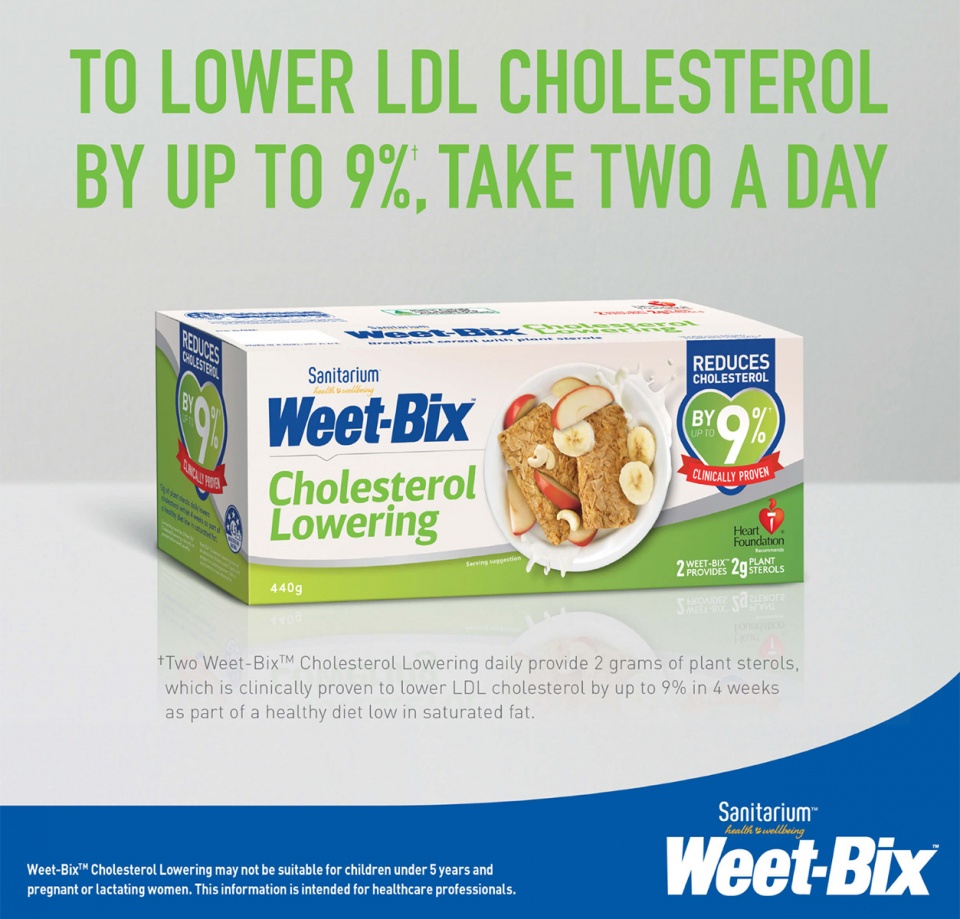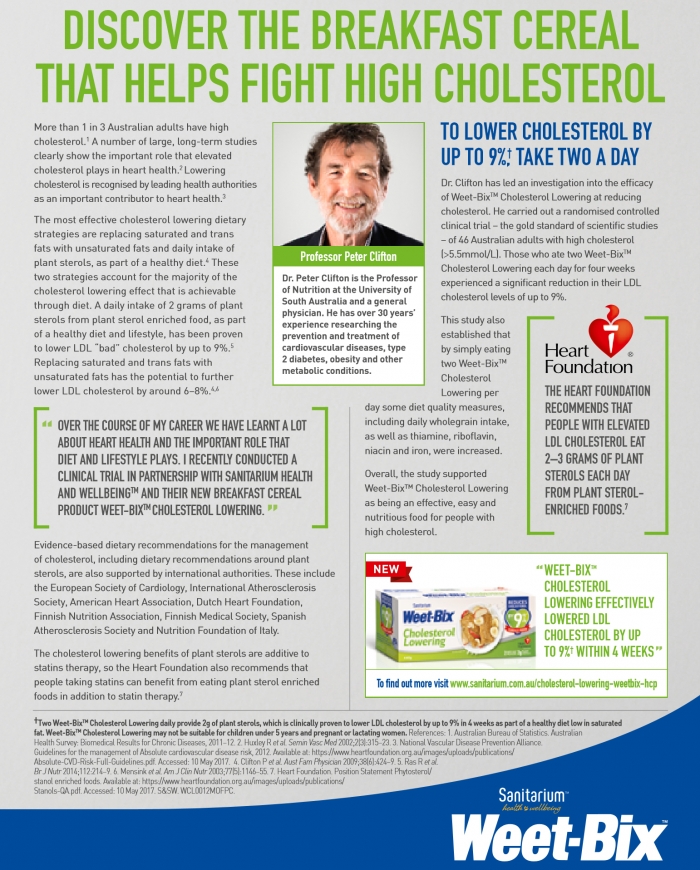Could food and pharmaceutical companies be pushing the benefits of 'Plant Sterols for Heart Health' too far?
Are there really benefits in lowering cholesterol levels using plant sterols?
Or, are vested interests and vegetarian/vegan ideology simply being allowed to shape our nutrition guidelines? Guidelines which are quickly becoming strict Rule-Books, fiercely protected by Associations and Regulatory Bodies around the world!
Heart Associations have always had pharmaceutical connections, but it is interesting to see their close alliances with the processed Food Industry, too. The American Heart Association is currently tied to Bayer/LibertyLink Soybeans and the Australian Heart Foundation is openly endorsing Sanitariums' Weetbix with 'Plant Sterols for Heart Health'.
What if plant sterols lower cholesterol, but increase risk for coronary heart disease? I share Zoe Harcombe's fascinating research on 'Plant Sterols for Heart Health' below.

If you consider the action of phytosterols is to block the absorption, and to compete with the cholesterol produced by the body, it becomes hard to understand the need to ingest plant sterols.
Cholesterol is essential to life, helping to make hormones like oestrogen, testosterone and adrenaline. It's used in the production of vitamin D and also in the production of bile acids, which help the body digest fat and absorb fat-soluble vitamins in the small intestine. Cholesterol also plays an important role in keeping the cell membranes fluid.
Conversely, plant sterols block these important processes!
For more information on cholesterol and testing please click here.

Why are the processed Food Industry offering medical advice to healthcare professionals?
Dr. Peter Clifton, Professor of Nutrition at the University of South Australia, recently conducted a clinical trial in partnreship with Sanitarium Health and Wellbeing™ and their new breakfast cereal product Weet-Bix™ Cholesterol Lowering.
Interestingly, there is no published research paper from the 4 week clinical trial anywhere to be seen on-line. Gary has searched extensively ...
But, that hasn't stopped Sanitarium offering medical resources for healthcare professionals and their patients from the results of a clinical trial which does their business model no harm ... and the Heart Foundation is proudly endorsing it.
American Heart Association tied up with soy beans and plant sterols
Bayer and LibertyLink Soybeans recently offered to help protect hearts in America’s heartland, claiming "Bayer is proud to announce its support of the American Heart Association (AHA) For each bag of LibertyLink® soybean seed sold for the 2017 season, Bayer will contribute 5 cents to the AHA’s Healthy for Good movement for a total maximum donation of $500,000."
They then state "We’re thrilled to partner with the American Heart Association to have a positive effect on not only heart health, but our industry as well."
WHAT IF PLANT STEROLS LOWER CHOLESTEROL, BUT INCREASE RISK FOR CORONARY HEART DISEASE?
Zoë Harcombe and Julien S. Baker published an editorial in the OnLine Journal of Biological Sciences after finding there was no evidence that plant sterols reduce the risk of Coronary Heart Disease (CHD) and much evidence that they are detrimental...
"Cholesterol lowering has become a national obsession for the developed world, from America to New Zealand. Statins are the preferred and most lucrative mechanism for reducing serum cholesterol levels. Plant sterols offer another option. They were first added to margarine and launched in Europe in 1997.
"Phytosterols effectively compete with the cholesterol made by the human body and replace it to an extent, thus lowering serum cholesterol levels."
While plant sterols do lower cholesterol levels ... there is no evidence that plant sterols reduce the risk of CHD and much evidence that they are detrimental.
For more information on cholesterol and Lipid Subfraction Analysis testing please take a look here.
#hearthealth #foodismedicine #isupportgary #lowcarbhealthyfat
